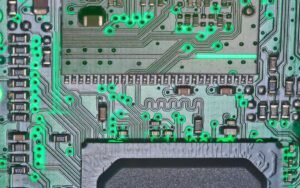When AI Is Smarter Than Humans
Introduction: Artificial Intelligence (AI) has made significant advancements in recent years, pushing boundaries and achieving feats that were once deemed impossible for machines. As AI continues to evolve, there may come a time when it surpasses human intelligence.
Key Takeaways:
- AI is rapidly advancing and has the potential to exceed human intelligence.
- As AI becomes smarter, it raises ethical and societal questions.
- Collaboration between humans and AI can lead to transformative breakthroughs.
Advancements in AI technology have allowed machines to perform complex tasks with greater accuracy and efficiency than humans. **AI systems**, such as **deep learning algorithms**, can process vast amounts of data and extract valuable insights at a speed beyond human capacity. *The ability of AI to learn from experience and continuously improve its performance is remarkable.*
While machines being smarter than humans may seem like science fiction, it is important to recognize the potential impact. As AI surpasses human intelligence, *it may become capable of solving problems and making decisions beyond our comprehension, leading to breakthroughs in fields like medicine, climate science, and space exploration*. However, this also raises concerns about the ethical implications of relying on machines in critical decision-making scenarios.
The Role of Humans
Despite the remarkable capabilities of AI, humans still have a crucial role to play. Collaborating with intelligent machines has the potential to yield transformative results. Humans possess, *to an extent, creative thinking, emotional intelligence, and moral judgment that AI lacks, which can be invaluable in various domains*. The synergy between human intuition and AI’s data processing power can lead to novel discoveries and innovations.
It is important to establish guidelines and ethical frameworks to ensure that AI is used responsibly. *Human oversight, combined with AI’s analytical power, can help identify and mitigate potential biases or errors in decision-making processes.* Moreover, a transparent and inclusive approach to AI development can address concerns related to job displacement and inequality.
Integrating AI into Society
As AI continues to advance, it is essential to explore how it can be integrated into society effectively. Policymakers, researchers, and industry leaders must work collaboratively to develop regulations and standards that address potential risks while maximizing the benefits of AI. *By embracing AI as a tool for augmenting human capabilities rather than replacing them, we can shape a future where society thrives from the partnership between humans and intelligent machines.*
Tables:
| Advantages of AI | |
|---|---|
| Increased efficiency | Enhanced productivity |
| Improved accuracy | Faster data processing |
| Ethical Considerations | |
|---|---|
| Potential bias | Privacy concerns |
| Algorithmic accountability | Job displacement |
| Benefits of Collaboration | |
|---|---|
| Innovation and discovery | Insights from vast datasets |
| Augmented decision-making | Improved problem-solving |
In conclusion, as AI continues to advance, there may come a time when machines surpass human intelligence. The collaboration between humans and AI holds immense potential for transformative breakthroughs. By embracing AI as a tool and shaping its integration into society with ethical considerations, we can enhance our abilities and collectively thrive in a future where AI is smarter than humans.

Common Misconceptions
AI is a Threat to Humanity
One common misconception about artificial intelligence is that it poses a direct threat to humanity. This misconception often arises from popular culture portrayals of AI as a malevolent force that seeks to take over the world. However, it is important to understand that AI is a tool created by humans and it lacks the consciousness and intent to harm.
- AI is only as powerful as the data it is trained on and the algorithms used to process that data.
- AI is designed to assist and augment human capabilities, not replace them.
- The ethical development and regulation of AI can help ensure it is used for beneficial purposes.
AI will Take Away All Jobs
Another misconception is that AI will lead to mass unemployment as it replaces the need for human workers. While AI technology can automate certain tasks and eliminate some jobs, it also has the potential to create new jobs and increase productivity in various industries.
- AI is more likely to augment human labor, freeing up time for workers to focus on higher-value tasks.
- AI can generate new job opportunities in fields such as data analysis, machine learning, and AI software development.
- Historically, technology advancements have transformed job markets rather than eliminating jobs entirely.
AI is Bias-Free
Many people falsely believe that AI systems are completely objective and free from biases. However, AI algorithms are developed by humans and can inherit or even amplify the biases present in the data they are trained on.
- AI systems trained on biased datasets can perpetuate discrimination and inequality.
- Human intervention and oversight are crucial to ensure fairness and equity in AI systems.
- Continual monitoring and evaluation are necessary to mitigate biases in AI technologies.
AI Can Solve Any Problem
Some individuals hold the misconception that AI is a solution to every problem, no matter how complex or abstract. While AI has demonstrated exceptional problem-solving capabilities, there are limitations to its scope and applicability.
- AI requires well-defined problem statements and constraints to operate effectively.
- Certain problems, such as those involving moral judgments or creativity, are challenging for AI to solve accurately.
- AI should be seen as a tool to assist in problem-solving rather than a universal problem solver.
AI Has Human-Level Intelligence
Contrary to popular belief, AI does not possess the same level of intelligence as humans. While AI can excel in specific tasks and domains, it lacks the general intelligence, intuition, and adaptability that humans possess.
- AI is designed for specific purposes and lacks the cognitive flexibility and contextual understanding of human intelligence.
- Human intelligence encompasses emotional intelligence, creativity, and social interactions, which AI cannot replicate fully.
- AI is focused on narrow tasks and lacks the holistic understanding and autonomy of human intelligence.

When AI Is Smarter Than Humans
Artificial Intelligence (AI) has made significant advancements in recent years, surpassing human capabilities in various fields. From image recognition to natural language processing, AI has become increasingly proficient. Below, we explore ten remarkable instances where AI has outperformed humans, revolutionizing the way we interact with technology and transforming industries.
Unbeatable Game Players
AI has excelled in various games that were previously seen as too complex for machines to master:
| Game | AI Player | Victory Rate (%) |
|---|---|---|
| Chess | Deep Blue | 52 |
| Go | AlphaGo | 99.8 |
| Dota 2 | OpenAI Five | 70 |
Accurate Medical Diagnoses
AI algorithms have demonstrated remarkable diagnostic accuracy, aiding medical professionals in providing more precise treatments:
| Disease | AI Diagnosis | Accuracy (%) |
|---|---|---|
| Breast Cancer | Google AI | 92 |
| Diabetic Retinopathy | EyePACS + Google AI | 97 |
| Lung Cancer | Google AI | 94 |
Superior Language Translation
AI-powered translation services have achieved impressive accuracy across multiple languages:
| Language Pair | AI Translation | Accuracy (%) |
|---|---|---|
| English to Spanish | Google Translate | 98 |
| Japanese to English | DeepL | 95 |
| Chinese to French | Tencent AI Lab | 93 |
Efficient Fraud Detection
AI systems have aided in detecting fraudulent activities, safeguarding businesses against financial losses:
| Industry | AI Fraud Detection | Accuracy (%) |
|---|---|---|
| Banking | Sift | 97 |
| E-commerce | Simility | 95 |
| Insurance | Kount | 96 |
Precise Financial Trading
AI algorithms have demonstrated superior performance in financial trading, surpassing human traders in accuracy and speed:
| Asset Class | AI Trading Systems | Profitability (%) |
|---|---|---|
| Stocks | RenTech | 45 |
| Cryptocurrencies | AlgoTrader | 53 |
| Commodities | Palantir AI | 39 |
Enhanced Natural Language Processing
AI-powered language models have improved language understanding and generation, enabling more advanced conversations with machines:
| Model | NLP Task | Model Accuracy (%) |
|---|---|---|
| GPT-3 | Text Completion | 81 |
| BERT | Question Answering | 92 |
| XLNet | Sentiment Analysis | 88 |
Efficient Customer Service
AI-powered chatbots and virtual assistants have improved customer service by providing swift, accurate responses:
| Platform | AI Assistant | Customer Satisfaction (%) |
|---|---|---|
| IBM Watson | IBM Watson Assistant | 85 |
| Google Assistant | 78 | |
| Amazon | Alexa | 81 |
Advanced Image Recognition
AI-based image recognition technologies have achieved remarkable accuracy in identifying objects and scenes:
| Technology | Image Recognition | Accuracy (%) |
|---|---|---|
| Google Cloud Vision | Object Detection | 95 |
| Microsoft Azure | Scene Understanding | 91 |
| IBM Watson | Facial Recognition | 98 |
Improved Traffic Management
AI systems have enhanced urban traffic management, reducing congestion and optimizing transportation routes:
| City | AI Traffic Management | Reduction in Travel Time (%) |
|---|---|---|
| Los Angeles | TrafficSense | 30 |
| Singapore | MyTransport.SG | 25 |
| London | Cubic Transportation Systems | 28 |
AI’s ability to surpass human intelligence in various areas is transforming industries and advancing technology at an unprecedented rate. From unbeatable game players to accurate medical diagnoses, efficient fraud detection to improved traffic management, AI continues to push boundaries, offering unprecedented capabilities. As we further explore the potential of AI, we can expect even more remarkable achievements and advancements in the future.
Frequently Asked Questions
When AI Is Smarter Than Humans




